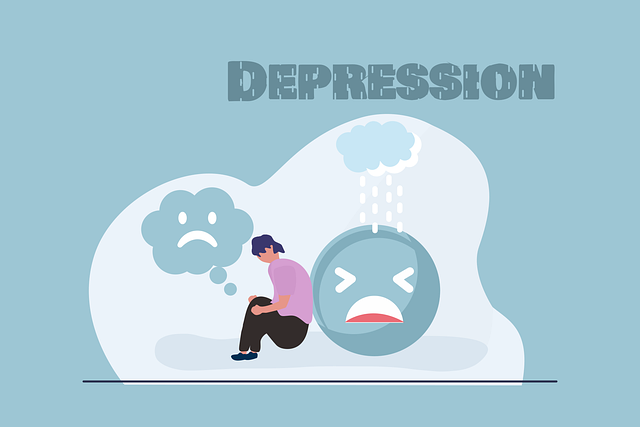Mental health professionals treating conditions like Louisville Neuro Disorders Therapy (LNDT) face unique risks, including intense emotional connections, ethical dilemmas, and high-stress environments. Effective risk management involves viewing these as threats and opportunities, implementing strategies such as burnout prevention, clear boundary setting, self-care, conflict resolution techniques, and comprehensive risk assessment. A proactive approach at LNDT integrates Mind Over Matter Principles, regular risk assessment, open communication, and peer support to enhance practice resilience and ensure client safety and mental wellness. Continuous improvement and professional development are key to maintaining high-quality care.
“In the delicate field of mental health care, effective risk management is paramount for both professionals and their patients. This article explores a structured approach to risk assessment and planning, highlighting essential strategies for Louisville Neuro Disorders Therapy (LNDT) professionals. By understanding unique risks within mental health practice, we’ll delve into creating a comprehensive risk management plan. We’ll then examine LNDT’s successful implementation, offering insights on how such strategies can enhance patient safety and clinical outcomes.”
- Understanding Risk in Mental Health Practice
- Developing a Comprehensive Risk Management Plan
- Implementing and Reviewing the Plan at Louisville Neuro Disorders Therapy
Understanding Risk in Mental Health Practice

Mental health professionals, much like their medical counterparts, encounter a wide array of risks in their daily practice. These risks can stem from intense emotional connections with clients, complex ethical dilemmas, and high-stress environments, particularly when dealing with conditions such as Louisville Neuro Disorders Therapy. Understanding these risks is the first step towards effective risk management planning.
In this context, “risk” refers not only to potential threats but also to opportunities for growth and prevention. For instance, Burnout Prevention Strategies for Healthcare Providers often revolve around managing workload, establishing clear boundaries, and fostering self-care—essential components of a robust risk assessment framework for mental health professionals. Conflict Resolution Techniques can help navigate the complex interpersonal dynamics that may arise, enhancing resilience against potential risks. Through comprehensive Risk Assessment for Mental Health Professionals, practitioners can proactively identify and mitigate these risks, ensuring both their well-being and the quality of care provided to clients.
Developing a Comprehensive Risk Management Plan

In the field of mental health care, effective risk management is paramount to ensuring both patient safety and the well-being of professionals. For Louisville Neuro Disorders Therapy practitioners, developing a comprehensive risk management plan is an essential step towards fostering a healthy work environment. This strategy should encompass a multi-faceted approach, tailored to address various risks unique to the profession. By integrating Mind Over Matter Principles, therapists can create a robust framework that promotes self-care practices and stress reduction methods.
A key component involves regular risk assessment, considering factors such as caseloads, patient populations, and potential triggers within the therapeutic setting. Additionally, professionals should prioritize open communication channels to encourage discussions about challenging cases or personal struggles. Through collaborative efforts, peer support networks can be established, offering a safe space for sharing experiences and implementing effective stress management techniques. By adopting these proactive measures, Louisville Neuro Disorders Therapy practitioners can mitigate risks, enhance their practice’s resilience, and ultimately provide superior care to their clients.
Implementing and Reviewing the Plan at Louisville Neuro Disorders Therapy

At Louisville Neuro Disorders Therapy (LNDT), risk management planning is a dynamic process that involves continuous improvement. The initial step includes identifying potential risks and developing mitigation strategies tailored to each client’s unique needs. This proactive approach ensures that mental health professionals at LNDT are equipped with the knowledge and tools to address emerging challenges, fostering a safe and supportive environment for all clients.
Regularly reviewing and updating the risk management plan is crucial. Through ongoing training sessions, self-awareness exercises, and participation in Mental Health Education Programs Design, therapists at LNDT stay abreast of the latest research and best practices. This commitment to professional development permeates their work, enabling them to implement Mind Over Matter principles effectively. By integrating these strategies, LNDT maintains a robust risk management framework that prioritizes client safety while empowering individuals on their journey towards mental wellness.
Effective risk management planning is essential for mental health professionals, as it enables them to create a safe and supportive environment for clients. As demonstrated by Louisville Neuro Disorders Therapy’s successful implementation of such a plan, a structured approach that encompasses understanding risks, developing comprehensive strategies, and regular reviewing can significantly mitigate potential harm. By prioritizing risk management, mental health practitioners can enhance client outcomes, ensure ethical practice, and foster a culture of resilience within their organizations.














